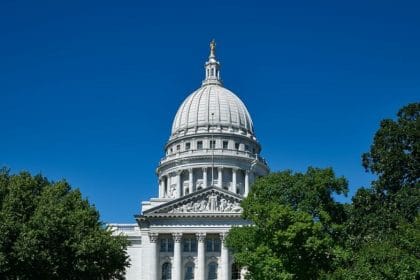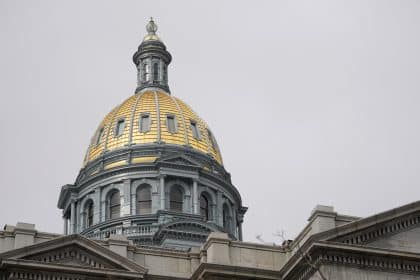Wisconsin Supreme Court Upholds Lame-Duck Laws Curbing Democrats Power

Wisconsin’s Supreme Court upheld lame-duck laws limiting the powers of Democratic Governor Tony Evers and Attorney General Josh Kaul, on Friday, a win for state Republicans, but one that might be only temporary.
The victory was on procedural grounds only, and was handed down by a court controlled by conservatives expected to be highly favorable to the Republicans.
Two other legal challenges, one in state court and the other in federal court, take aim at the laws themselves rather than how the Republicans went about passing them weeks after GOP Governor Scott Walker was voted out of office.
The laws the Republicans passed during an extraordinary session of the legislature in December limit Attorney General Josh Kaul’s ability to control the state’s participation in lawsuits, target Evers’ power to run the state’s economic-development agency and limit early voting hours.
The lawsuit decided Friday was filed in January by the League of Women Voters, Disability Rights Wisconsin, Black Leaders Organizing for Communities and other groups who argued the limits placed on the incoming Democrats were invalid because the Wisconsin legislature convened illegally — long after their session had ended — to pass them.
In a 4-3 ruling, the court concluded the plaintiffs were wrong and the Wisconsin Constitution gives lawmakers the authority to decide when to meet.
However “the Legislature chooses to accomplish the legislative process is squarely the prerogative of the Legislature,” the majority said.
In their dissent, the three liberal justices on the court said the legislature clearly was out of bounds when it convened the lame-duck session.
Erin Grunze, executive director of the League of Women Voters of Wisconsin, said Friday’s decision “undermines Wisconsin voters’ trust in their legislature to operate with transparency and to respect constitutional limits.
“We are disappointed the court ruled in favor of the Legislature’s extraordinary session that undermined the Wisconsin Constitution’s limit on unbridled power,” Grunze said. “As an organization dedicated to serving these voters, the League will continue working to educate voters about the impact of this ruling.”
Chris Carson, president of the League of Women Voters of the United States, added, “Today’s decision by the Wisconsin Supreme Court undermines the will of Wisconsin voters. The Wisconsin State Legislature’s actions defied the democratic process, which is a major blow to our democracy as a whole. This decision makes clear the need for League’s work; and the League will continue to work to defend the will of voters, despite today’s decision.”
Governor Evers called Friday’s decision “disappointing and, unfortunately, all too predictable.
“It is based on a desired political outcome, not the plain meaning and text of the constitution,” he said.
“The state constitution is clear. It limits when the legislature can meet to pass laws,” the governor continued. “Our framers knew that no good comes from lawmakers rushing laws through at the last minute without public scrutiny. The lame-duck session proves the framers were right.”
He closed by calling the lame-duck session, an attack on the will of the people, our democracy, and our system of government.”
Republicans in the statehouse held a predictably different opinion.
“The Court upheld a previously non-controversial legislative practice used by both parties for decades to enact some of the most important laws in the state,” Assembly Speaker Robin Vos, R-Rochester and Senate Majority Leader Scott Fitzgerald in a joint statement. “This lawsuit, pursued by special interests and Governor Evers, has led to an unnecessary waste of taxpayer resources. We urge the governor to work with the Legislature instead of pursuing his political agenda through the courts.”
Republican legislators in several states have passed laws in lame-duck sessions following election losses in recent years.
In addition to the Wisconsin provisions, outgoing Michigan Governor Rick Snyder signed lame-duck measures in December to weaken minimum wage and paid sick time laws, and in North Carolina Republicans approved a sweeping package of restrictions on incoming Democratic Governor Roy Cooper in a December 2016 lame-duck session.























